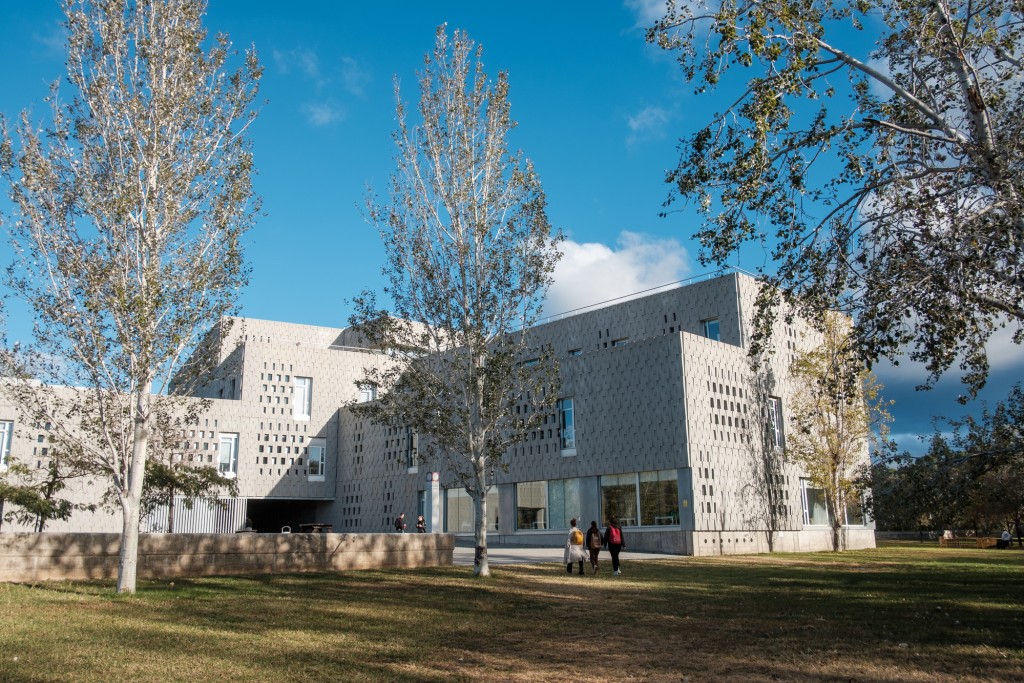13/12/2023
The University’s budget for 2024 is 137.58 million euros
It will be invested in improving infrastructures and generating energy to contribute to energy savings

It will be invested in improving infrastructures and generating energy to contribute to energy savings
The University’s Board of Trustees has approved a budget of 137.58 million euros for 2024, an increase of 1.75% on the current budget (8.37% if the funds earmarked for research projects through competitive or specific calls are not taken into account). They have taken this decision because although there is an increase in expenditure, with a maximum ceiling on staff costs, this is compensated by the consolidation of additional funding from the Department of Research and Universities, the increase in income from tuition fees and financial investment, and the continued energy savings resulting from the Energy Emergency Plan.
Thus, although the budget is a continuation of the previous one, expenditure on infrastructure and IT resources is expected to increase due to the increase in the CPI and the cost of some contracts. However, the expenditure on gas and electricity is expected to remain the same. As far as staff are concerned, salaries have increased by 3% but the natural growth of the workforce is lower than in other years because a considerable number of lecturers and researchers are retiring.
The Catalan Government covers part of this natural growth and provides additional funds to cover generational renewal. It also covers the expense of the new teaching positions at the Vilafranca del Penedès Campus and the increase in the cost of energy. In addition to the Catalan Government’s contribution, which has increased by a total of 8.38 percentage points compared to the previous year, the 2024 budget has significantly increased the amount of financial income due to the rise in interest rates and income from students enrolling in bachelor’s and master’s degrees, which this year was 2.04% higher than in 2023. Earmarked income, however, has fallen because of the end of the Next Generation programme.
The budget proposal was approved by the Governing Council last Wednesday and endorsed by the Board of Trustees. The report on the Energy Emergency Plan, launched a year ago was also submitted for the consideration of the Governing Council.
The lowest energy consumption since the University closed down during the pandemic
In November 2022, the first measures of the Energy Emergency Plan were applied to reduce energy consumption and, therefore, encourage saving in an uncertain period of increase in electricity and gas bills. Among the measures adopted are investment in the improvement of infrastructure, the generation of energy and the implementation of control tools, which in 2023 amounted to savings of 845,000 euros and in 2024 are expected to be around 3 million euros.
The planned improvement in the efficiency of the buildings will complement the efforts made by the university community this past year. In fact, the modelling of the consumption confirms that the plan has worked: monthly energy consumption has been reduced by an average of 266,000 kWh, a reduction that has only ever been greater in the months when the University was totally or partially closed because of COVID (between March and December 2020). In this period, the average monthly reduction was 316,000 kWh.
The reduction in energy consumption between November last year and October this year was 24.1%, four points above the target set when the Energy Emergency Plan was launched. This is a figure comparable to that of 2020, the year the pandemic began, when the year-on-year reduction was 26%.
Despite the efforts, however, the savings do not counter the increase in the cost of energy, which increased by 49.4% between November 2022 and October 2023, and by 79.5% if the reference period is from January to October this year, with a peak in February and also in September.
For the next three years, the target is to save 10%, so the measures to reduce consumption have been kept in place, the closure of buildings during certain periods of the year tested in 2023 will remain in force, and further investment will be made to renew air conditioning, lighting and control systems. Likewise, improvements will be made to building envelopes, and more photovoltaic panels will be installed.
Photovoltaic panels are already in operation on three campuses: Sescelades and Catalunya (Tarragona), and Terres de l’Ebre (Tortosa). It has been estimated that they have produced 6% of all the electricity consumed between November 2022 and November 2023. In 2024, panels will be installed on the Bellissens campus (which are expected to produce 714,000 kWh) and at the Technology and Innovation Transfer Centre.
The Governing Council on 13 December also discussed the report on the evolution of the teaching offer and enrolment. This year the URV has 12,664 undergraduates and 2,171 master’s degree students (1.8% more than last year), in addition to 3,713 lifelong learning students, 868 more than last year. The URV is the university in the Catalan public system with the highest percentage of students with general grants (33.2%), which are awarded on the basis of family income and assets.
A further two reports were also submitted for discussion: the Report on Dropout Rates from Bachelor’s Degrees (9.1%) and the Report on Social Engagement through the activities of the Extended Campus, cultural classes and cooperation. The call for adjunct teaching staff was also approved.
